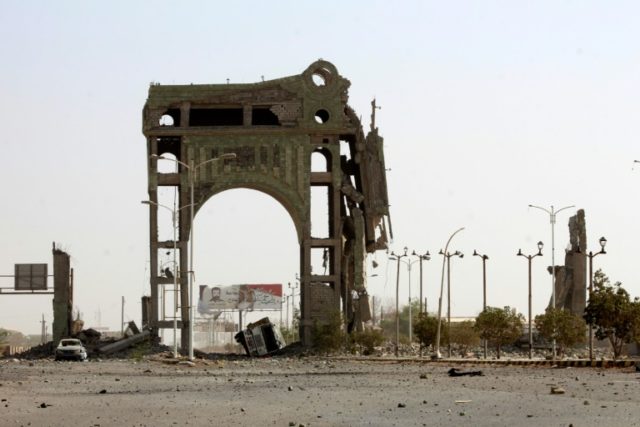Rimbo (Sweden) (AFP) – The United Nations has submitted proposals on two Yemeni cities caught in a bitter war — the port city of Hodeida and besieged Taiz — to warring parties at UN-sponsored talks in Sweden.
The Yemeni government, which is backed by Saudi Arabia and its military allies, has been battling the Iran-backed Huthi rebels for control of Yemen for nearly four years, pushing the impoverished country to the brink of famine.
The warring parties are in Sweden for weeklong talks expected to continue until the end of this week, the first since more than three months of negotiations collapsed in 2016.
Among the issues under discussion in Sweden are humanitarian corridors, the reopening of the defunct Sanaa international airport and a massive prisoner swap.
Also under discussion are the fate of the rebel-held port city of Hodeida, vital to aid and food imports, and Yemen’s third-largest city Taiz, the scene of some of the country’s most intense battles.
– ‘Lift threat of war’ –
The prisoner swap has been finalised, both sides said Monday.
Martin Griffiths, the UN special envoy for Yemen, said the swap had proved the least contentious issue, adding that he hoped it “will be very very considerable in terms of the numbers that we hope to get released within a few weeks”.
The fight for Taiz and Hodeida, however, shows no sign of waning.
“These are two major population zones in Yemen caught in war,” Griffiths told reporters on Monday.
“I’m hopeful that we can reach agreements on the de-escalation to reduce the fighting in both places. I’m hoping that we can. We’re not there yet.”
“If we are able to achieve progress on those two places and lift the threat of war to the people in those two places, I think we’ll have done a great service to Yemen,” Griffiths said.
Initial drafts of the proposals on the rebel-held port city of Hodeida and Taiz, seen by AFP Monday and confirmed by members of both delegations, call for a mutual ceasefire between the two parties.
The Hodeida draft stipulated that the Saudi-led military coalition fighting the Huthis would cease an offensive on the rebel-held city in exchange for a Huthi withdrawal.
The area would then be put under the control of a joint committee and supervised by the United Nations. The document does not propose the deployment of UN peacekeeping troops.
Griffiths said the UN had simplified the Hodeida draft, which is still under study by the Yemeni delegations.
“We are always redrafting, so some of those documents that you’ve seen” have changed, Griffiths told reporters.
“We’re working on simpler draft,” he added. “The details of that are in deep discussion.”
– Military operations ongoing –
The Saudi-led coalition on Monday said military operations were ongoing in Hodeida, as the Sweden talks entered their fifth day.
“The rebels have fortified their defence lines inside Hodeida city,” said coalition spokesman Turki al-Maliki. “We are working to create safe humanitarian corridors from Hodeida to Sanaa.”
The UN has regularly urged the Saudi-led coalition to suspend operations in the densely-populated city, home to 600,000 people and a traditional conduit for 90 percent of food imports to Yemen.
The Huthis seized the Red Sea city of Hodeida in a territorial takeover in 2014. The port city has since June been at the heart of a government offensive to drive the rebels out.
Aid groups have warned the destruction of Hodeida would worsen the humanitarian crisis in Yemen, where the UN estimates 14 million people face starvation.
The two sides are also looking at a draft UN proposal on the southwestern city of Taiz, under the control of pro-government forces but besieged by the rebels.
The initial draft stipulated an unconditional ceasefire, a joint working group that includes the UN to monitor the ceasefire, and the reopening of all roads and Taiz airport for humanitarian operations.
The World Health Organization says nearly 10,000 people have been killed in Yemen since 2015, when Saudi Arabia and its allies joined President Abedrabbo Mansour Hadi’s fight against the Huthis. Other rights groups say the toll could be as high as 50,000.
The conflict has triggered what the UN calls the world’s worst humanitarian crisis — with children starving to death, recruited as child soldiers and bartered off as child brides.

COMMENTS
Please let us know if you're having issues with commenting.